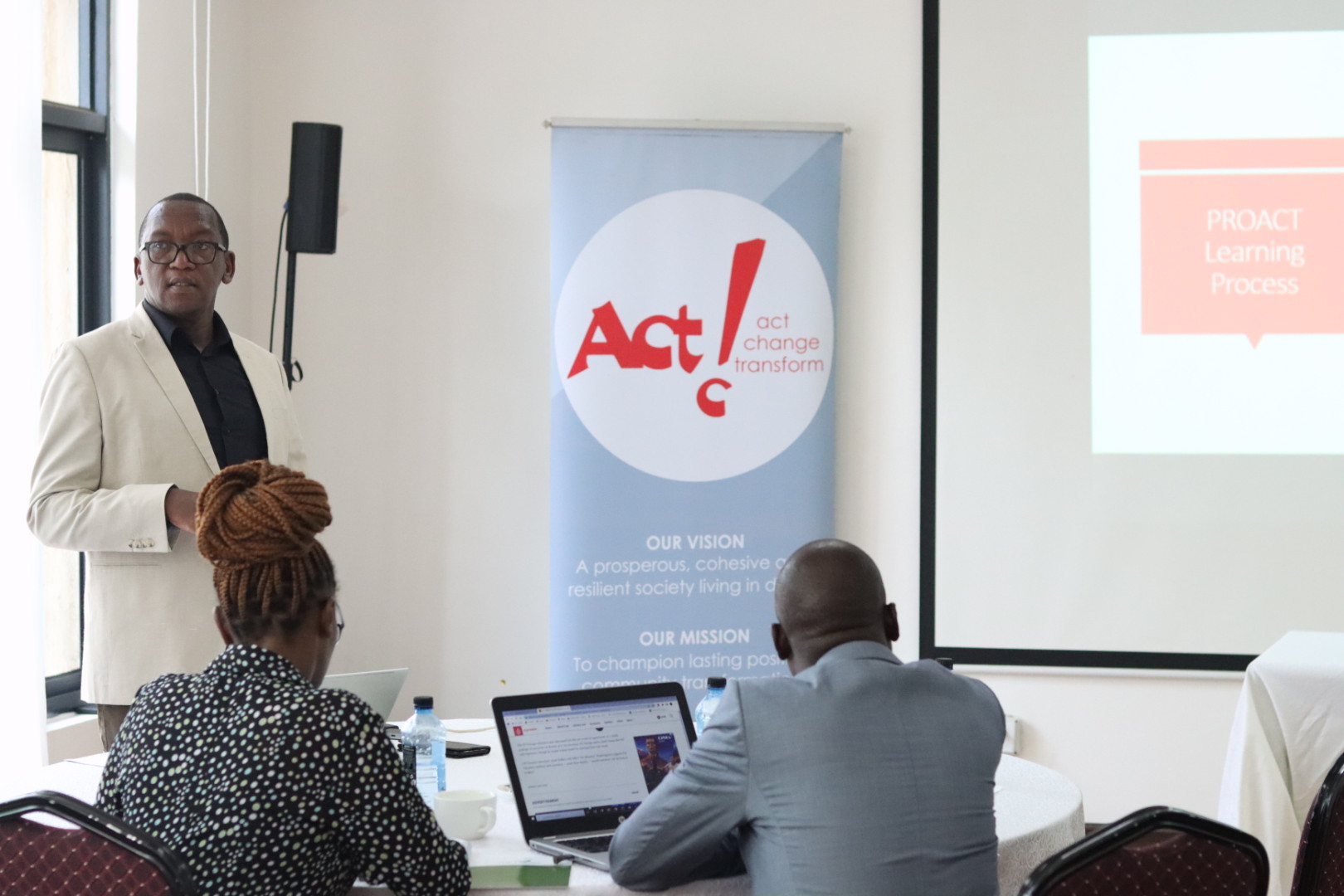According to the National Counter Terrorism Centre (NCTC), violent extremism is a national security concern in Kenya. It threatens and undermines Kenya’s, constitutionalism, core values and principles, including human rights, the rule of law, democracy, equal opportunity and freedom. Violent extremism also threatens Kenya’s existence as a harmonious, cohesive and inclusive society. Cumulatively, radicalization and violent extremism are threat to Kenya’s security, economy and way of life .
The problem of radicalization and terrorism in Kenya is recognized internationally, with the Global Terrorism Indexes ranking the country amongst the 25 countries in the world most affected by violent extremism that is conducive to the spread of terrorism. Violent extremism has been a growing issue in Kenya, since the group al-Shabaab has expanded its activity and attacks to countries neighbouring Somalia. Major attacks by al-Shabaab in Kenya include the Nairobi mall attack in 2013, Mpeketoni attack in 2014, the Garissa University attack in 2015 and more recently, the Nairobi hotel siege in 2019. More than 400 people have been killed as a result of attacks executed by the violent extremist group. Kenya has had a history of sporadic terror attacks over several decades but the origin of the rapid spread of terrorism activities in the country can be traced to after October 2011 when Kenya deployed its forces to Somalia to combat al-Shabaab, the Somali based extremist group that has been blamed on radicalization, recruitment and attacks in Kenya. Since 2011, the extremist group has carried out hundreds of attacks on Kenyan soil, particularly in the Coast and Northeast regions. Al-Shabaab continues to exploit long-standing ethnic and political grievances in Kenya , as well as a porous land and maritime border with Somalia, to radicalize and recruit new fighters to its cause .
Other grievances driving radicalization and recruitment in Kenya include but is not limited to perceived or real marginalization and lack of integration of Muslim communities; economic factors, such as high poverty and unemployment rates; religious factors, such as Islamic extremism; poor counterterrorism strategies and policies, which label Muslims as terrorists and spur condemnation of them; and revenge for KDF going to Somalia to fight al-Shabaab militants. In UNDP’s Journey to Violent Extremism in Africa, most former violent extremists admitted to joining violent extremist groups across the continent due to human rights abuses at the hands of militaries and police. Unfortunately, Kenya’s security forces are often criticised for their hard-handed security measures which have lead to multiple civilian deaths. In 2019, the Human Rights Watch submitted a report in which they expressed their concerns over enforced disappearances and extrajudicial killings of violent extremist and criminal suspects. Communities are continuously faced with threats, intimidation and harassment by police and the military – incidents which are rarely reported or investigated.[1]
According to Extremism Project, al-Shabaab is not the only active extremist group targeting Kenyans. Kenyans have also sought to join Islamic State in Iraq and Syria (ISIS). Cumulatively and according to Kenya Countering Violent Extremism (CVE) Observatory, Kenya has suffered 179 attacks, 373 fatalities with security agencies making 494 terror related arrests from 2017 to 2020 . On the other hand, attacks decreased from 69 (in 2020) to 51 reported in 2021. Six counties were affected in 2021 i.e. 28 attacks in Mandera; 12 in Lamu; eight in Wajir; one in Garissa; one in Kwale; and one in Kisumu . This means that geographies (counties) bordering Somalia and those in the coastal region remains the most affected by violent extremism and terrorism. Over the years, research has shown that al-Shabaab has expanded its recruitment pool to non-traditional Muslim dominated areas as was found out during the 14 Riverside Drive (dusitD2) attack in Nairobi in January 2019. In the past, the security forces concentrated their efforts in parts of the country that are Muslim majority, Muslim-dominated. The 14 Riverside Drive attack demonstrated that now it’s much harder because al Shabaab has shown its adaptability by recruiting from outside the traditional areas .
To help address these challenges, the Institute for Strategic Dialogue (ISD) through funding from the US Department of State has been implementing PROACT: Community Based Interventions in Kenya program for the period 2019-2022. The program aimed to enhance community resilience to address and prevent polarization, radicalization and extremism, which are security and conflict concerns in the prioritized counties of Isiolo, Kwale, and Nakuru.
The program included the distribution of sub-grants to several community-based organisations to implement the program in the counties of Isiolo, Kwale, and Nakuru respectively. PROACT supported and strengthened existing structures and strategies such as CAPs, as well as its organs such as Community Engagement Forums (CEFs) to build local capacities for community-designed and delivered P/CVE interventions. It also contributed to ISD’s Strong Cities Network (SCN) whose purpose is strengthening municipal and local capacities to counter radicalization and recruitment by violent extremist groups.[2]
To provide an evidence base and measure change on radicalisation and drivers of violent extremism in Kenya, PROACT collaborated with Act! to develop a baseline report, a mid term and an end term evaluation study on community-based P/CVE interventions in the counties of Isiolo, Kwale, and Nakuru. This endline evaluation data were compared with the baseline to establish change that PROACT could have contributed to in terms of increasing communities’ resilience to address polarization, radicalization, and extremism. The endline research relied on a mixed approach to gather primary data in the program counties. Data was collected in the three programmatic counties in November 2022.
[1] See Human Rights Watch’s Kenya Fails to Honor Human Rights Promises to UN
[2] SCN supports the US National Strategy for Counterterrorism that addresses violent extremism by strengthening local-level civil society prevention efforts and supporting the reintegration of former violent extremist offenders into society.























